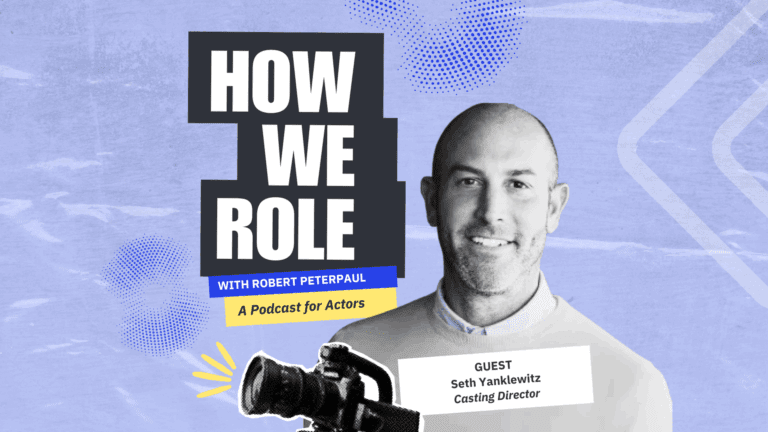Rejection is part and parcel of an actor’s career. For the most part, we expect that rejection to come externally. What’s less talked about are the ways we internalize that rejection, the toll it can take on our mental health and how it can hinder the success of our acting careers.
Internalizing rejection usually starts in ways where it doesn’t feel like an issue. Many people use humor as a defense mechanism, and self-deprecating humor is a particularly popular brand.
Used sparingly, it can be harmless. However, there can be unexpected consequences when it becomes a habit. Self-deprecating humor can easily morph into negative self-talk, leading to depression, anxiety and low self-esteem.
The self-deprecation loop can be especially damaging when we’re in a slump. When experiencing a slump, it’s important to pay attention to how we are treating ourselves. The habits we form early on often continue to define how we treat ourselves throughout our careers.
Think about all the energy it takes to constantly disparage your efforts. This energy would better serve you by being put towards building yourself up and advocating for yourself.
What do you do when you’re experiencing a self-deprecation loop? Here are a few key things to remember.
Insights: Quick Tips to Help Stop the Self-Deprecation Loop
- Notice when you use self-deprecating humor, especially during stressful times or before big opportunities, and actively shift to positive affirmations.
- Identify why you engage in negative self-talk, whether it’s preemptive self-rejection or managing others’ expectations, and work on providing yourself with what you’ve been lacking.
- Treat yourself as kindly as you would a friend by setting clear boundaries with your own negative thoughts and practicing self-advocacy.
Pay Attention to Your Self-Talk
The first weapon in your arsenal is acknowledgment. We often slip into self-deprecation or negative self-talk mode without knowing. Start taking note of the times you use self-deprecation in public and in private. Note how often it happens, and if there are any patterns. Is it worse when you’re stressed? What about when you have a big opportunity in the balance? Knowing when you’re reacting this way can help you stay vigilant and reroute your thoughts.
Figure Out the Cause of the Negative Self-Talk
Habits are easier to change when you know what is at the root of them. Are you trying to reject yourself “before others can?” Are you managing the expectations of others so you don’t need to fear disappointing them? If you can figure out why you’re tearing yourself down, it might be easier to work on giving yourself whatever was lacking in the first place.
It’s easy to judge yourself for your negative self-talk, but that can become a vicious cycle with detrimental effects and destructive patterns. As difficult as it may be, it’s important to exercise forgiveness. Remember that this kind of behavior usually starts as a reasonable response to a stressful situation, or as a protective measure. There’s no need to beat yourself up for having formed these habits. Instead of resorting to self-deprecating language or falling into negative thought patterns, thank them for their work and remind them their services are no longer needed. Engage in positive self-talk instead.
While you’re at it, before you think about what you aren’t doing, think about the personal growth you’ve made to get where you are today.
Thinking about joining Casting Networks? Sign up for a free trial today!
Define Your Boundaries and Stick to Them
As bad as I am at setting boundaries with others, I’m a thousand times worse at setting them with myself. Luckily, it’s something I’m aware of and working on.
A common tip therapists suggest is to ask yourself whether you would say the things you say to yourself to anyone else. I know I can’t imagine treating anyone else the way I sometimes treat myself. Although setting boundaries with coworkers and friends is something we’re often encouraged to do, it’s easy to forget to do it with ourselves.
Practice advocating for yourself the way you would for a friend. Call yourself on it when you’re not being kind or reasonable with yourself.
However, this is not to say you should never use self-deprecating humor. While perfectly fine in moderation, if unchecked, it can become a defining trait. If that happens, it can drain your mental resources and broadcast your low self-esteem to others (including casting directors).
Ignore the cycle of negativity. Practice positive affirmations and love yourself courageously, even if you have to fake it ’till you make it. Eventually, that confidence and self-worth will shine through.
You may also like:
Where to Draw the Line: Setting Professional Boundaries
Don’t Wait for Permission: Making the Bucket List a Reality
Playing the Action vs. Playing the Mood: Add Depth and Build to Your Scene Approach













